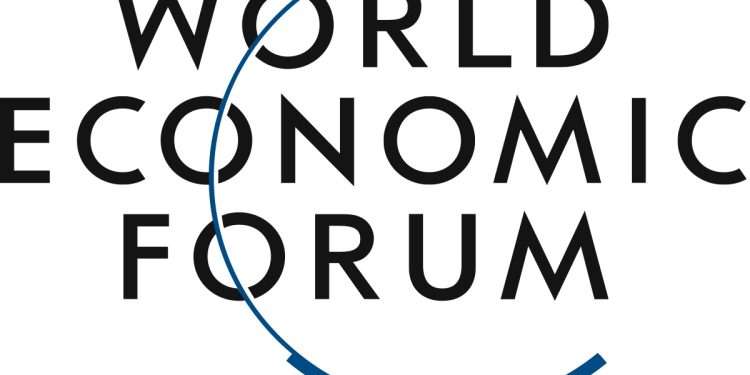2025 Global Risk Report
The World Economic Forum (WEF) releases 2025 Global Risk Report, aimed at analyzing key themes of global risks over the next decade.
The World Economic Forum believes that the intensity and frequency of environmental risks continue to increase. In the global risk ranking of the next decade, environmental risks such as climate and nature rank in the top four.
Related Post: World Economic Forum Puts Climate Risks at the Top of Global Risk List
Short Term Environmental Risk Outlook
The World Economic Forum surveys over 900 respondents from various industries worldwide to understand short-term environmental risks. Environmental risks occupy two positions among the top ten global risks by 2025, namely extreme weather events (14%) and critical change to Earth systems (4%). Extreme weather events include heat waves, floods, hurricanes, etc. Critical change to Earth systems refers to irreversible environmental changes that occur beyond critical points, such as glacier melting leading to sea level rise. The attitudes towards environmental risks are generally consistent among different age groups, with all respondents ranking extreme weather events in the top two.
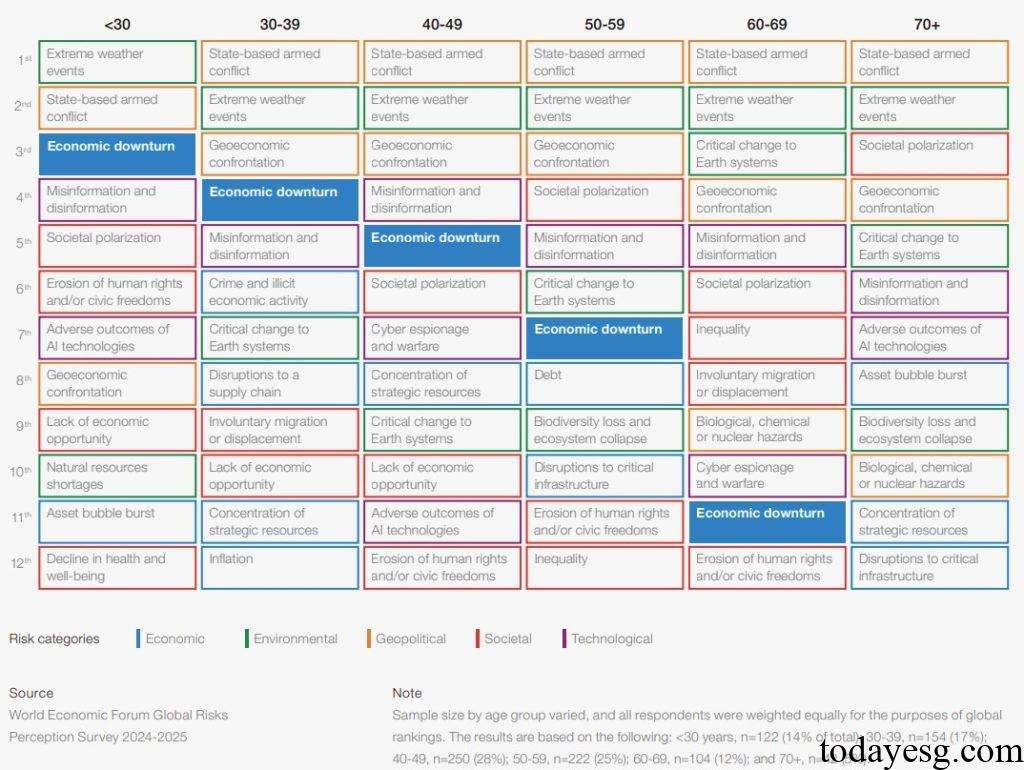
In the past two years, extreme weather events and pollution rank second and sixth respectively in global risk selection. Compared to the 2024 Global Risks Report, the ranking of extreme weather events has not changed, while the ranking of pollution has increased from tenth place. These information indicate that respondents believe that pollution may pose greater risks in the short term.
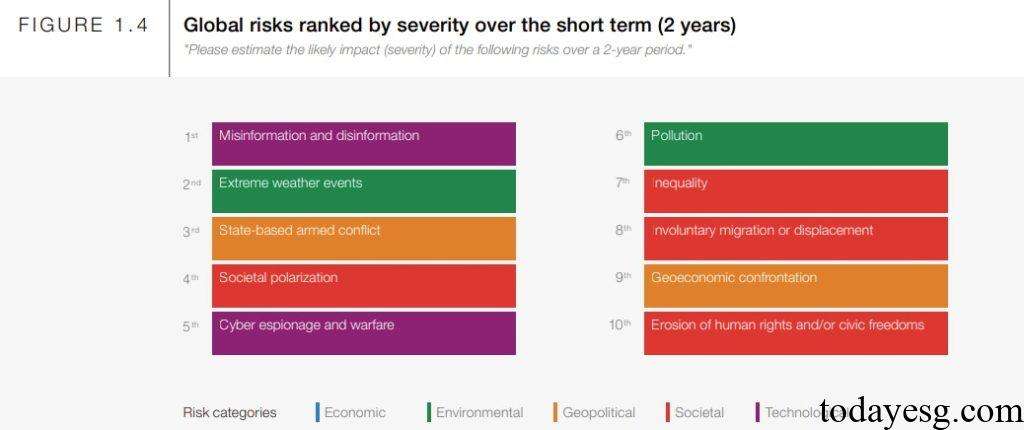
Long Term Environmental Risk Outlook
The World Economic Forum surveys respondents’ views on global risks by 2035 and finds that five environmental risks rank among global risks, namely extreme weather events (1), biodiversity loss and ecosystem collapse (2), critical change to earth systems (3), natural resource shortages (4), and pollution (10). The assessment of environmental risks is similar in different regions, with environmental risks occupying two to four positions in the top five risk events.
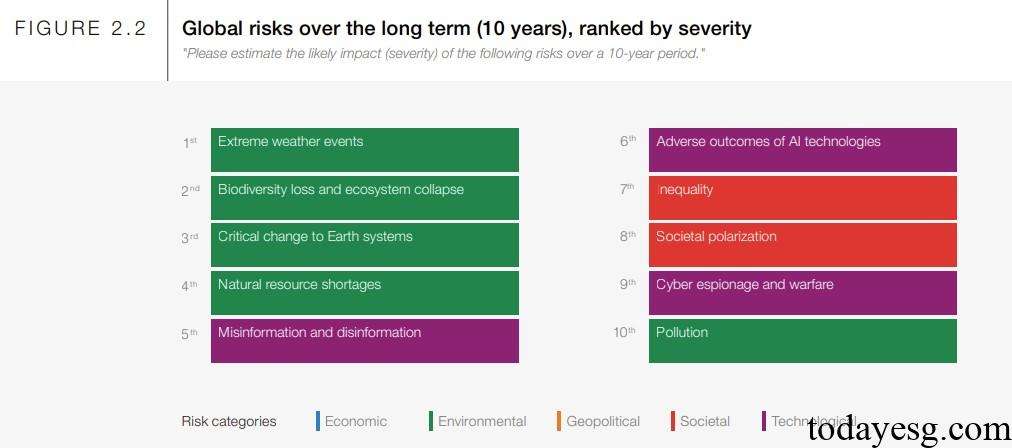
Extreme weather events have consistently ranked first in long-term risk rankings over the past two years, with their ranking gradually rising since 2006 and remaining in the top five for the past decade. The intensity and frequency of extreme weather events are increasing, and their impact is also increasing. After adjusting for inflation, the cost of extreme weather events has increased by 77% in the past fifty years.
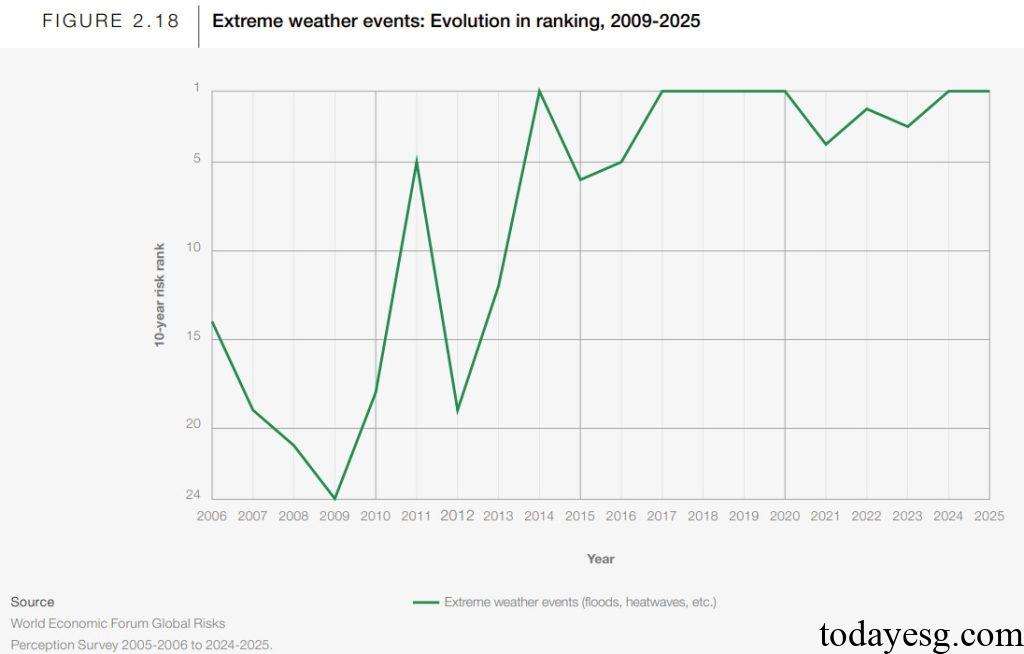
Pollution has been ranked tenth in the long-term risk ranking for the past two years. By 2024, six global environmental boundaries have exceeded critical values, and pollution has become the world’s largest environmental risk factor, causing 92% of economic losses in low – and middle-income countries. In 2035, pollution will threaten the resilience of ecosystems and have a greater impact on human health.
The World Economic Forum believes that pollution exists in the air, water, and land. Short lived climate pollutants in the air, such as black carbon and methane, have a 45% impact on global warming. Per and polyfluoroalkyl substances, microplastics and nano plastics, and pharmaceuticals in water can have long-term effects on human health. The treatment of nitrogen and waste in land may result in economic losses exceeding $500 billion annually.
In response to pollution, the World Economic Forum proposes the following suggestions:
- Improve monitoring, reporting, and evaluation systems: Many emerging pollutants lack long-term data, so updated monitoring, reporting, and evaluation systems are needed to identify and understand their risks and track progress.
- Strengthen regulatory framework: National and local regulations are considered by respondents to be the most effective way to reduce pollution, and regulatory agencies can formulate policies based on scientific research to mitigate the impact of pollution on humans and the environment.
- Release long-term funds: Large scale and comprehensive financial support is crucial for pollution prevention and control. International financial institutions and multilateral development banks can act in this area to provide financial support for technological solutions.
Reference:

